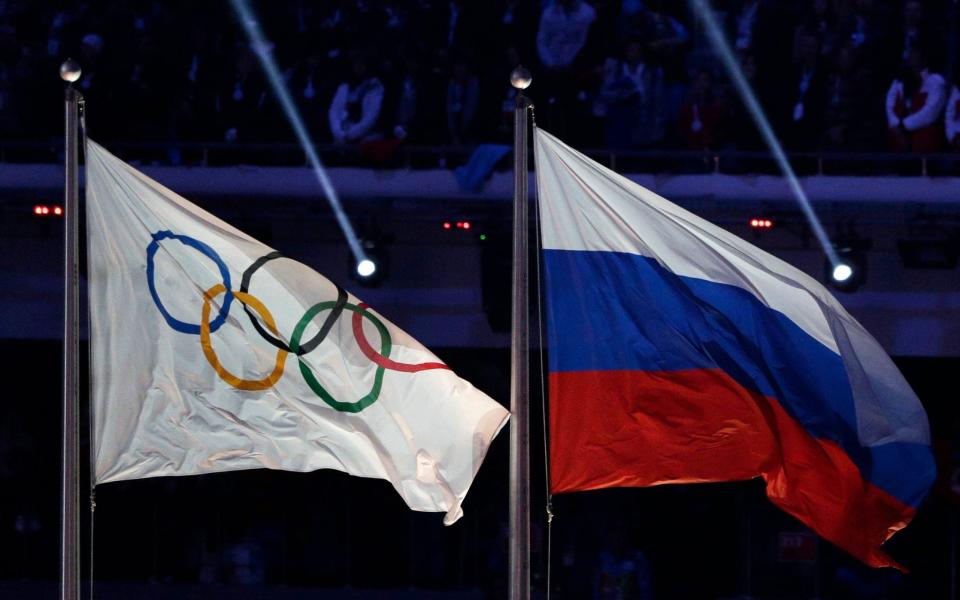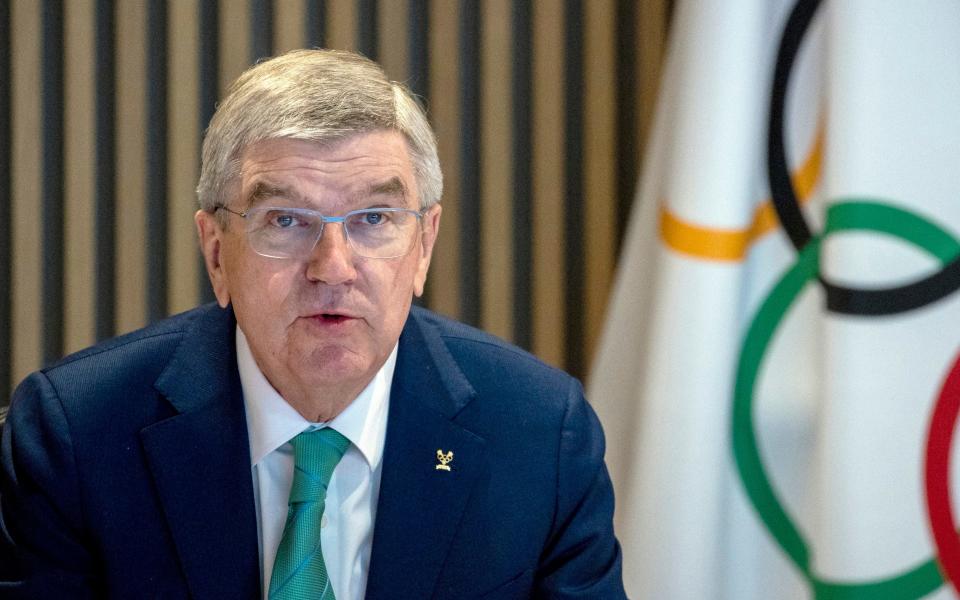Russian athletes still banned from elite competition after World Athletics ruling

World Athletics has put itself on a potential collision course with the International Olympic Committee after banning Russia and Belarus athletes from elite competition.
The Russian Federation had already been suspended since November 2015 following institutional doping violations and, while that sanction was lifted on Thursday, athletes remain banned in response to the Ukraine war.
Ukraine pole vault legend Sergey Bubka is vice president of World Athletics and, despite the IOC announcing a proposed pathway that would allow Russians to return under a neutral flag, they will remain barred from international athletics events.
They will also have no access to Olympic qualifying competition, although that situation could still change subject to Russian and Belarus meeting a set of criteria that will be defined by a newly formed working group.
World Athletics president Seb Coe said that there was “no ambiguity” about their right to decide on the participation of Russian athletes rather than the IOC in what is widely considered to be the blue riband sport of the Olympic Games.
“We determine eligibility and, for our world championship events, for the foreseeable future, the exclusion remains,” said Coe. “We felt it was in the best interests of our sport.”
Asked if Russia will need to leave Ukraine in order for its athletes to return to international competition, Coe said: “It remains my instinct. But I think that will also fall firmly within the remit of the working group that will want to look at that process.”
Coe also stressed that there was ongoing dialogue with the IOC, of which he is a member, and there will be a meeting of that executive board next week.

It all follows an escalation this month in the British government’s opposition to Russian athletes competing in next year’s Olympics.
In a move that prompted the IOC to claim that governments deciding Olympic participation “would be the end of world sport as we know it”, Culture Secretary Lucy Frazer directly called on leading sponsors like Coca-Cola and Visa to take action.
Ukraine president Volodymyr Zelensky had told a summit of sports ministers last month that 228 Ukrainian athletes and coaches had already died since the Russian invasion last year. The Ukrainian Ministry of Sport also said that 350 sports facilities have been destroyed, 40,000 athletes have been forced abroad and that 140,000 of their most promising young athletes have been left without training facilities.
Hosts France, the United States and Japan, who staged the most recent summer Games, had all joined the UK in signing a collective statement to say that a sporting ban should remain in place while the Ukraine war continues.
The statement did still acknowledge that Russian and Belarusian athletes could compete as neutrals, subject to strict conditions, but questioned whether this was ever feasible when they are directly funded and supported by their states. “The strong links and affiliations between Russian athletes and the Russian military are also of clear concern,” said the statement.
More than 330 Russian athletes were permitted to compete at the Tokyo Olympics under what was called ‘the Russian Olympic Committee’ following the doping scandal and finished with 71 medals - behind only the United States and China.
With the work of the Russian composer Tchaikovsky still played during gold medal presentations, and athletes wearing the striking red, blue and white colours, the practical experience of a ‘neutral’ ban was widely derided.
Sharron Davies, who was denied a gold medal at the Moscow Olympic in 1980 by an East German athlete who was part of the state-sponsored doping programme, said: “It would be a travesty if Ukraine athletes had to line up next to Russian and Belarussian athletes. Young athletes have died [during the war], sporting facilities have been ruined. I think it’s very important. The idea of competing under a neutral flag is ridiculous.”
Coe, who was the Olympic 1,500 metres champion in 1980 and 1984, also confirmed that he intends to stand as World Athletics president for a third term. He was first elected in 2015 after previously serving as vice-president.

 Yahoo Sport
Yahoo Sport 





































